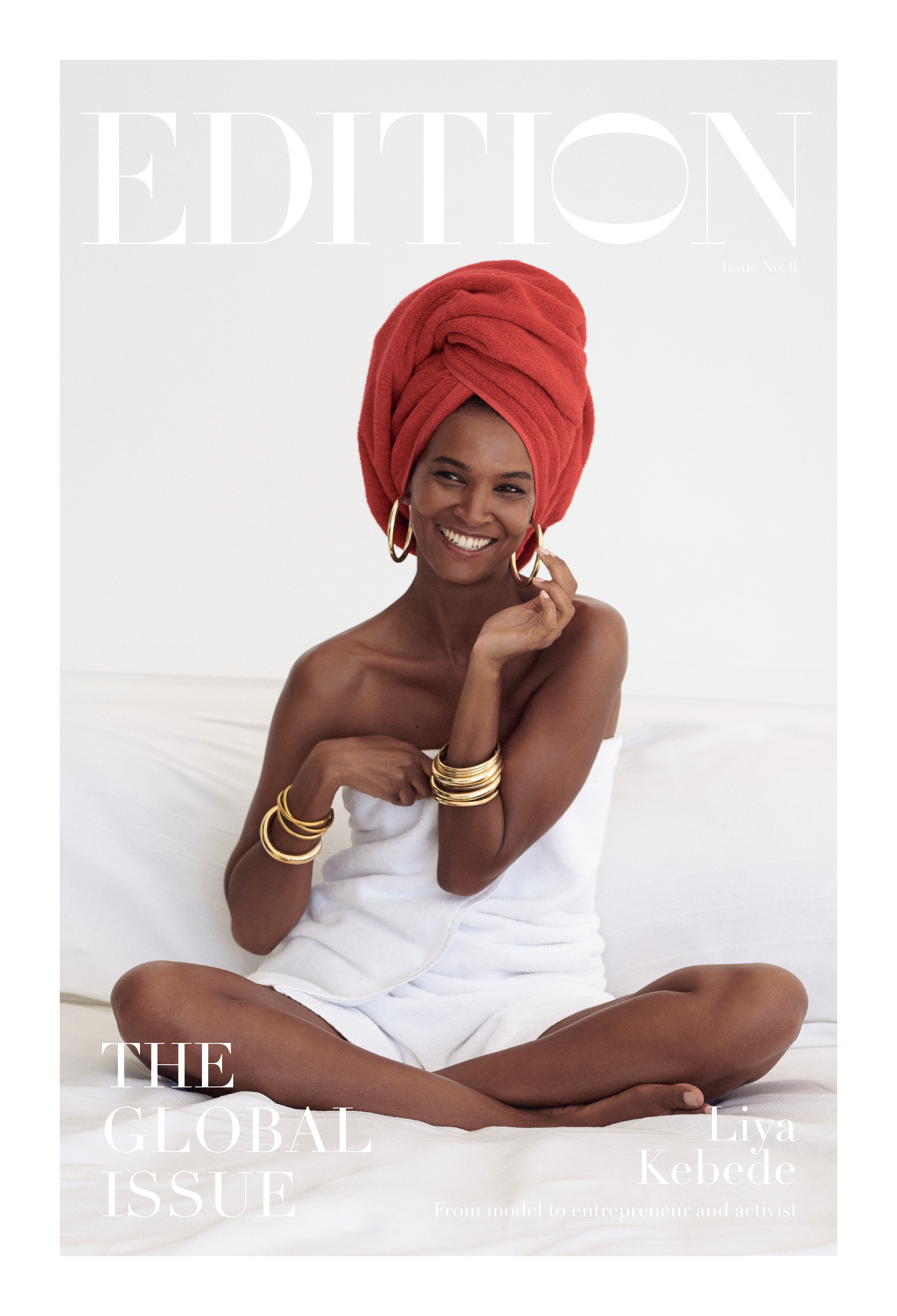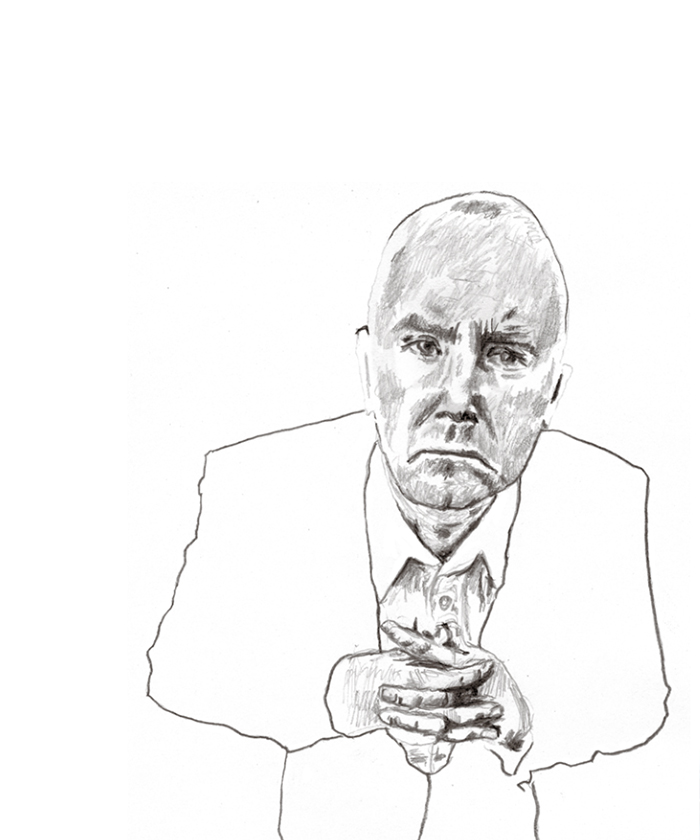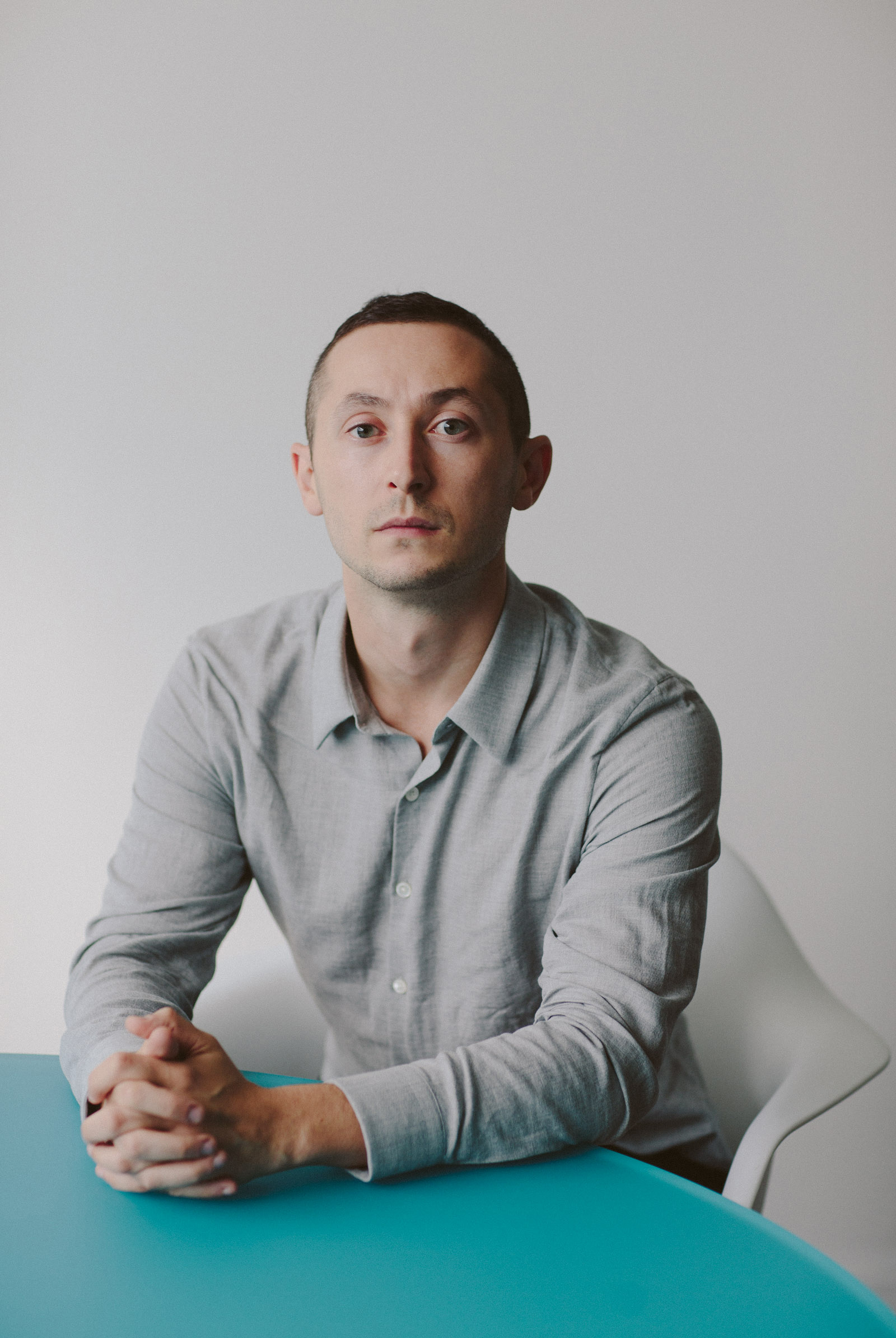
Global Issue
Global Issue: Editor’s Letter
Editor’s Letter
John Fraser
The Michelin-starred chef has a story to tell you through his cooking
Pundy’s Picks for Conscious Travel
Six tips for considered and conscious travel
Genmaicha Martini Recipe
The classic martini plus the health benefits of green tea
The Spread Love Project by Nicholas Konert
How Nicholas Konert’s rainbow heart design became an international icon
Wade Davis
Anthropology is the antidote to today’s nativism says the scholar and author
Carla Sozzani
The future of retail according to the founder of legendary concept store 10 Corso Como
The Art of Migration
The power of art to inspire empathy and social action
John Pawson
Zen Buddhism and minimalist purity drive the celebrated architect
Amy Duncan
As the CBD line Mowellens expands into skincare, its founder shares the personal story behind her company
Sila Sveta
Moscow’s favorite media studio finds the perfect balance between art and commerce
David de Rothschild
In his calls for environmental awareness, the modern explorer finds harmony between man and nature
Can Fashion Be Sustainable?
Shaping a better world through what you buy – or don’t
Brendon Babenzian
Supreme’s former creative director wants to end the cycle of consumption with his new brand Noah
Lily Kwong
Nature invades the urban jungle in the landscape designer’s expansive projects
House of Yes
Behind the scenes with the Bushwick nightlife collective promoting inclusivity and consent culture
Vivie-Ann Bakos
DJ Extraordinaire
Chez Dede
A medium in which two world-traveling, adventurous spirits absorb the globe’s vast curiosities and share them freely
Jesse Israel
A meditation guide for extraordinarily large groups
Liya Kebede
The Ethopian model, activist, and entrepreneur uses her label Lemlem as a force for change

Irvine Welsh
Trainspotting's Author, on EDM, Addiction, and Twitter Rituals
Two decades after Penning Cult Classic, Trainspotting, Irvine Welsh’s controversial, canny prose is as socially relevant as ever. Today, a south Florida lifestyle of working out, oceanfront cocktails. and social media binges may not seem punk rock, but writing keeps him connected to his working-class Scottish roots.
ON MIAMI VS. SCOTLAND:
It makes you feel like you’ve gone to another planet in a way, in terms of looking at light, the fauna, the wildlife, lifestyle, and culture. Miami is an incredibly visual culture, whereas Scotland is an incredibly verbal culture. What really appeals to me is to have that complete contrast. [In] Miami I feel that everything’s new–I always feel that my take on Miami is as relevant as any- body’s who’s just got o the plane or the boat.
It’s very much a city of immigrants and new faces and new voices. So it’s a very exciting place to write because there are all sorts of people. You’ve got the tourists and the spring breakers but you’ve also got the old retirees, the massive Latino vibe, and the transplants from all the parts of the United States, who are there for dodgy nefarious reasons, and some because it’s a great place to live. Then you’ve got the artists and the models and the photographers. You’ve got that big visceral culture and it’s got that relaxed but vibrant sort of thing going on.
THE HIGHS AND LOWS OF SOUTH BEACH:
I like that I can go to Soho Beach House and have a cocktail, and then I can go to club Deuce and drink beers there with the guys that have amazing stories to tell who come from all over the place. You’ve got the high life and low life all crushed together. You’ve got the manly stuff and you’ve got the whole dance culture as well―the EDM kind of hedonism.
WRITING RITUALS:
I find that if it’s dark weather it takes me so long to get started. If it’s bright your synapses seem to open up and your endorphins buzz and you just get moving a lot quicker. In Miami a typical day would be I’ll get up about six, have some breakfast, do a couple hours work. Then I’ll go to the local boxing gym at the South Beach Club. Or I’ll go for a run, so I’ve got some physical activity programmed in to the day so I’m not just sitting at a desk all of the time.
FROM THE 70S LONDON PUNK SCENE TO ELECTRONIC MUSIC:
I wasn’t a very good musician. I went from guitar, which I was terrible on, to bass, which I could kind of do. Then I used to listen to house and electronic music. I was always drawn to the bass line, and I was always pushing the bass up. I found I could mix on the beat, and I liked the whole club life as well. So that was the progression.
A lot of good DJs have that bass consciousness. The people who came through the punk scene, they were drawn to DJing through that love of bass, basically. I never said I was a good DJ, I’ve never claimed any skill about it. The two things that I love—live music and football—I’ve been terrible at them both.
ON WRITING ABOUT HEROIN, PORNOGRAPHY, AND THE UNDERBELLY OF SOCIETY THEN VS. NOW:
I don’t think there’s an underground like there used to be. The mainstream media has been changed by the internet, so anything that would’ve been underground—even fifteen years ago—can now pop into the mainstream at any time.
There is less of an element of shock than there used to be. A writer can’t really shock by showing people aspects of society [anymore]. Like with Trainspotting, you could show a way of life, you could show a messed up panorama. You can’t do it in the same way now.
SOCIAL MEDIA HABITS:
I love Twitter because you can just throw something out there and see who says yes or no, or f-off or whatever. I think it’s a good thing for writers to do. It’s fun as well. What really gets me about it is that you get a weird profile of yourself. I look back on all the tweets I do, and I can’t believe how serious and how frivolous I can be from one to the other. It’s quite disconcerting, that you’re actually like that, and you recognize these truisms about yourself. The good thing about Twitter is that nothing’s filtered and it’s a bit more unguarded and probably a bit more honest. You can’t really hide or create a persona or let someone else create a persona for you. A composite of the real person starts to emerge.
ON ALIENATION VIA SOCIAL MEDIA:
I think that’s the problem—people go through life worried about what other people think of them and they get too obsessive about it. If somebody disagrees with what you say they’ll just think, “Ooh, that’s that arsehole.” There’s a lot of people I follow on Twitter who I disagree with, but I don’t have any kind of annoyance or anger towards them.
ON MELLOWING WITH AGE:
I think most people agree they become better in a lot of ways [with age] because they’ve become a bit more considerate, which wasn’t always the case with me in the past. Even if you’ve always felt compassion for other people, when you’re younger you’re so into yourself, you’re so narcissistic. I probably still am quite narcissistic but nothing like I used to be. I do think more about other people, I do think more about the impact of what I say, and that how I behave affects other people. But I feel as if I’ve still got that very “f#*k everything” mentality, you know?
When you write a novel of fiction you create a world and you create these characters, and you’ve got to be true to them as you see them. [You can’t] start to compromise and look at the market and think, “I could make this more of a crime story, I could make this more of a romance,” or these other things that are selling in the marketplace. But, I really enjoy being able to forge foreign landscapes and being able to create this world. This to me is always challenging myself and serves as a cautionary tale, and that’s my drive to write, really.
BEST SPOTS IN MIAMI:
Go to South Florida Boxing Club, because I think one of the things about Miami is that you’ve got to be in shape. It’s a very visceral culture, it seems a bit frivolous and empty and narcissistic, but if you go there, take some of the very basic boxing or cross-foot classes, you’ll be in much better shape in a couple of weeks. Even if you’re not a big beach bum, if you lose a bit of weight and tone up, and get a bit of a tan, you blend in with the locals instead of looking a bit strange like I always do. I always look like a milk bottle, so it takes me a while to get tanned.
Art & Culture
The power of art to inspire empathy and social action
Zen Buddhism and minimalist purity drive the celebrated architect
Moscow’s favorite media studio finds the perfect balance between art and commerce
Behind the scenes with the Bushwick nightlife collective promoting inclusivity and consent culture
DJ Extraordinaire
A medium in which two world-traveling, adventurous spirits absorb the globe’s vast curiosities and share them freely
A meditation guide for extraordinarily large groups
Experiences
Moscow’s favorite media studio finds the perfect balance between art and commerce
In his calls for environmental awareness, the modern explorer finds harmony between man and nature
Behind the scenes with the Bushwick nightlife collective promoting inclusivity and consent culture
DJ Extraordinaire
Food & Drink
The Michelin-starred chef has a story to tell you through his cooking
Six tips for considered and conscious travel
Personalities
Style
The classic martini plus the health benefits of green tea
How Nicholas Konert’s rainbow heart design became an international icon
As the CBD line Mowellens expands into skincare, its founder shares the personal story behind her company
Nature invades the urban jungle in the landscape designer’s expansive projects
The Ethopian model, activist, and entrepreneur uses her label Lemlem as a force for change

